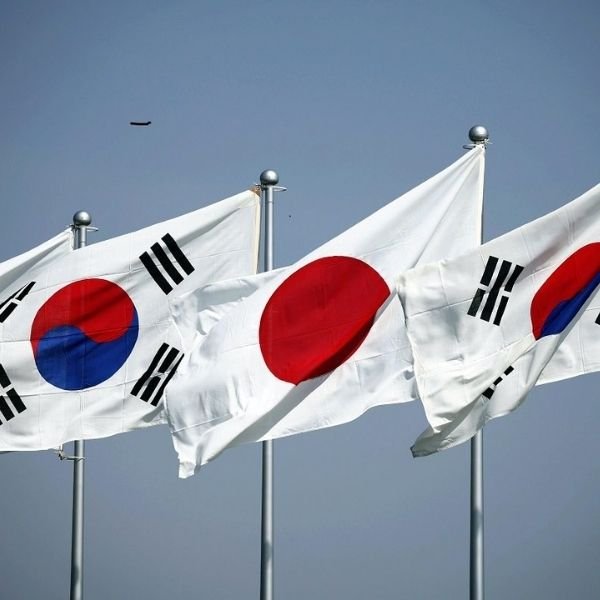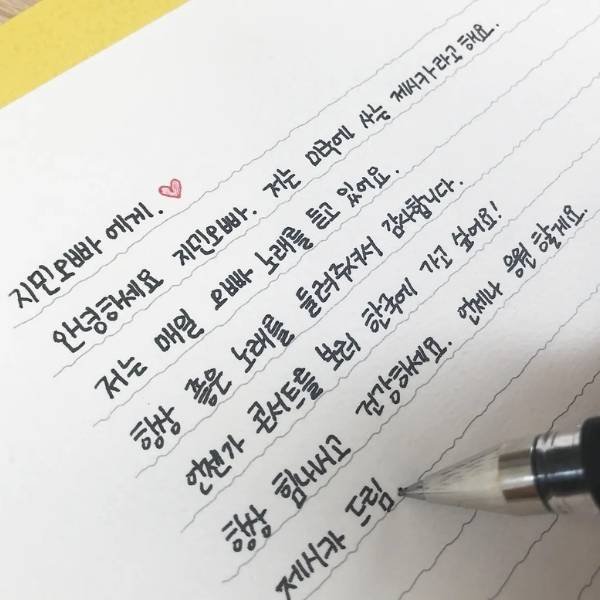
Japanese Language Vs Korean Language: Which Should You Learn Today
In an era defined by cultural exchange, the global influence of East Asia is undeniable. Driven by the captivating worlds of Japanese anime and the infectious energy of the Korean Wave (Hallyu), a growing number of people are drawn to learning these fascinating languages. However, prospective learners often face a dilemma: given the commitment required, which path should they choose? The debate of the Japanese Language Vs Korean Language is not about which is superior, but which is a better fit for an individual's goals, learning style, and interests.
This article provides a comprehensive comparative analysis to help you make an informed decision, exploring language difficulty, real-world usefulness, and the resources available for your journey.
Comparative Analysis: A Head-to-Head Look
To decide which language to learn first, Japanese or Korean, it's essential to break down their core components and see how they stack up against each other.
Language Difficulty: Japanese vs Korean
A common question revolves around Japanese vs Korean language difficulty. While both are ranked by the U.S. Foreign Service Institute as Category V languages, meaning they are among the most difficult for native English speakers to learn, their challenges manifest in different areas.
- Writing System:
- Korean: The Korean alphabet, Hangul, is widely praised for its logical design. It consists of 24 basic letters (14 consonants and 10 vowels) that are combined into syllabic blocks. Most learners can master the fundamentals of reading Hangul within a few hours, making it incredibly accessible.
- Japanese: The Japanese writing system is a complex, multi-layered beast. It employs three different scripts simultaneously: Hiragana (for native words and grammar), Katakana (for foreign loanwords), and Kanji (logographic characters adopted from Chinese). While Hiragana and Katakana are phonetic scripts with 46 characters each, mastering the thousands of required Kanji is a lifelong endeavor.
- Pronunciation:
- Japanese: Japanese pronunciation is generally more straightforward for English speakers. It has only five simple vowel sounds and a relatively consistent phonetic structure.
- Korean: Korean features a wider array of vowel sounds and subtle distinctions between consonants that can be tricky for learners to hear and replicate. Furthermore, it has complex sound change rules (liaison) where the pronunciation of a consonant can change depending on the following sound.
- Grammar:
- Similarity: Both languages follow the Subject-Object-Verb (SOV) sentence structure and use particles to mark the grammatical function of words. This is a major difference from English's SVO structure.
- Differences: Japanese grammar can feel more approachable initially, with simpler conjugation rules for adjectives. However, its system of honorifics (Keigo) is notoriously complex at advanced levels. Korean verb conjugations and its seven speech levels can present a steeper learning curve at the beginning, but the rules are arguably more systematic.
When we consider Japanese vs Korean vs Chinese, we see that while Japanese and Korean share some loanwords from Chinese, their grammar is fundamentally different. Chinese (Mandarin) grammar is SVO and lacks the complex conjugations of Japanese and Korean, but its tonal system and complete reliance on logographic characters present their own unique challenges.
Looking to learn a new language with structured guidance? Check out this diverse range of language courses tailored for beginners to advanced learners.

Usefulness: Japanese vs Korean Which is More Useful?
The "usefulness" of a language is entirely subjective and depends on your goals.
- For Career & Economy:
- Japanese: Japan boasts the world's 4th largest economy. Proficiency in Japanese is highly valuable in fields like automotive engineering, robotics, finance, and video game development.
- Korean: South Korea's economy is a global powerhouse in technology (Samsung, LG), cosmetics, and entertainment. The Hallyu wave has created countless opportunities in media, marketing, and international business.
- For Travel & Culture:
- If your passion is anime, manga, Studio Ghibli films, and the rich history of samurai and temples, Japanese is your gateway.
- If you are captivated by K-pop, K-dramas, and South Korea's dynamic modern culture and cuisine, Korean will immerse you in that world.
For additional learning support, explore the best YouTube channels to learn Japanese that offer engaging video lessons and native speaker content.
Learning Resources and Community
Both languages have a wealth of learning resources. For those wanting to test the waters, taking an online Japanese vs Korean quiz can help you see which writing system or sound palette feels more intuitive. Furthermore, online communities can be invaluable. A search for Japanese vs Korean Reddit will lead you to vibrant forums like r/LearnJapanese and r/Korean, where learners share tips, ask questions, and find support.
If you're serious about mastering Korean from basics to fluency, explore this comprehensive Korean language course designed for all levels.
FAQs:
1. Which language is harder, Korean or Japanese?
Answer: Both languages have unique challenges. Japanese is often easier at the beginner level due to simpler grammar, but its writing system, including Kanji, Hiragana, and Katakana, is complex. Korean has Hangul, which is easier to learn, but pronunciation and honorifics can be tricky. At intermediate levels, Korean learners often find progress faster.
2. Is Korean different from Japanese language?
Answer: Yes, Korean and Japanese are linguistically unrelated. They share some structural similarities, such as SOV (subject-object-verb) order and some Chinese-origin vocabulary, but their writing systems and pronunciation rules are entirely different. Japanese uses three scripts while Korean relies on Hangul, which is simpler to read.
3. Who speaks better, English, Japanese, or Korean?
Answer: English proficiency depends on education and exposure. Koreans often score higher in English due to strong school emphasis and global exposure, while Japanese speakers tend to have lower practical usage. Individual skills and personal practice can significantly affect fluency in all countries.
4. Which Asians speak the best English?
Answer: Singaporeans, Filipinos, and Indians are widely recognized for high English fluency, using it daily in education and work. Among East Asians, Koreans generally outperform Japanese speakers. English fluency is influenced by education systems, media exposure, and real-life usage opportunities.
5. Which country speaks the most Japanese?
Answer: Japan is the primary country where Japanese is spoken. Outside Japan, Japanese-speaking communities exist in Brazil, the U.S., and the Philippines, often maintained through cultural schools or associations. Globally, Japanese learners are numerous, but fluent speakers outside Japan remain limited.
6. Is Korean easier to pronounce than Japanese?
Answer: Pronunciation in Korean can be more challenging due to certain consonants, vowel combinations, and subtle distinctions that affect meaning. Japanese pronunciation is relatively consistent and simpler for beginners, though pitch accent and long vowels require practice to master.
7. Can Japanese and Korean speakers understand each other?
Answer: Generally, no. Despite some shared vocabulary and grammatical similarities, the languages are not mutually intelligible. Speakers may recognize a few borrowed words, but understanding full sentences without study is extremely limited.
8. Is it better to learn Japanese or Korean for business opportunities?
Answer: Both languages have value depending on your career goals. Japanese is essential for businesses related to Japan, technology, and export-import sectors, while Korean is useful for K-pop, gaming, and trade with South Korea. Consider your field and future opportunities before choosing.
9. Are Japanese and Korean writing systems difficult to learn?
Answer: Japanese uses three scripts: Hiragana, Katakana, and Kanji, which can be time-consuming to master. Korean uses Hangul, a highly systematic and phonetic alphabet, making it easier to learn initially. The difficulty also depends on your exposure and consistent practice.
10. How long does it take to become fluent in Japanese or Korean?
Answer: Fluency depends on study intensity, practice, and immersion. On average, it may take 2–3 years of consistent study to reach conversational fluency in Japanese, and slightly less in Korean due to Hangul. Immersion, language practice, and structured courses can significantly accelerate learning.
Curious about how to say and use family terms in Japanese? Learn the correct usage of husband in Japanese along with cultural nuances and variations.

Conclusion: Making Your Choice
In the end, the Japanese Language Vs Korean Language debate is resolved by looking inward. There is no universally "better" or "easier" language to learn. The right choice is the one that aligns with your passion and purpose.
Choose Korean if: You want a language with a brilliantly logical writing system that you can learn quickly, and you are fascinated by the dynamic energy of K-pop and Korean dramas.
Choose Japanese if: You are drawn to the worlds of anime and manga, want a language with simpler initial pronunciation, and are ready for the long-term but rewarding challenge of mastering Kanji.
Whichever path you choose, remember that language learning is a marathon, not a sprint. Your consistency and, most importantly, your genuine interest in the culture will be the true keys to your success.
If you're considering picking up a new language, explore the benefits of learning Japanese to understand how it can enhance your personal, academic, and professional life.
Learn Japanese or Korean – Choose Your Path!
Whether you want to learn Japanese first or explore Korean, both are rewarding languages with rich cultures. You can start learning both languages with free online courses, mobile apps, or by enrolling in structured classes like those offered at TLS – The Japanese Language School and SIL- Study International Language.
Start your language journey today!